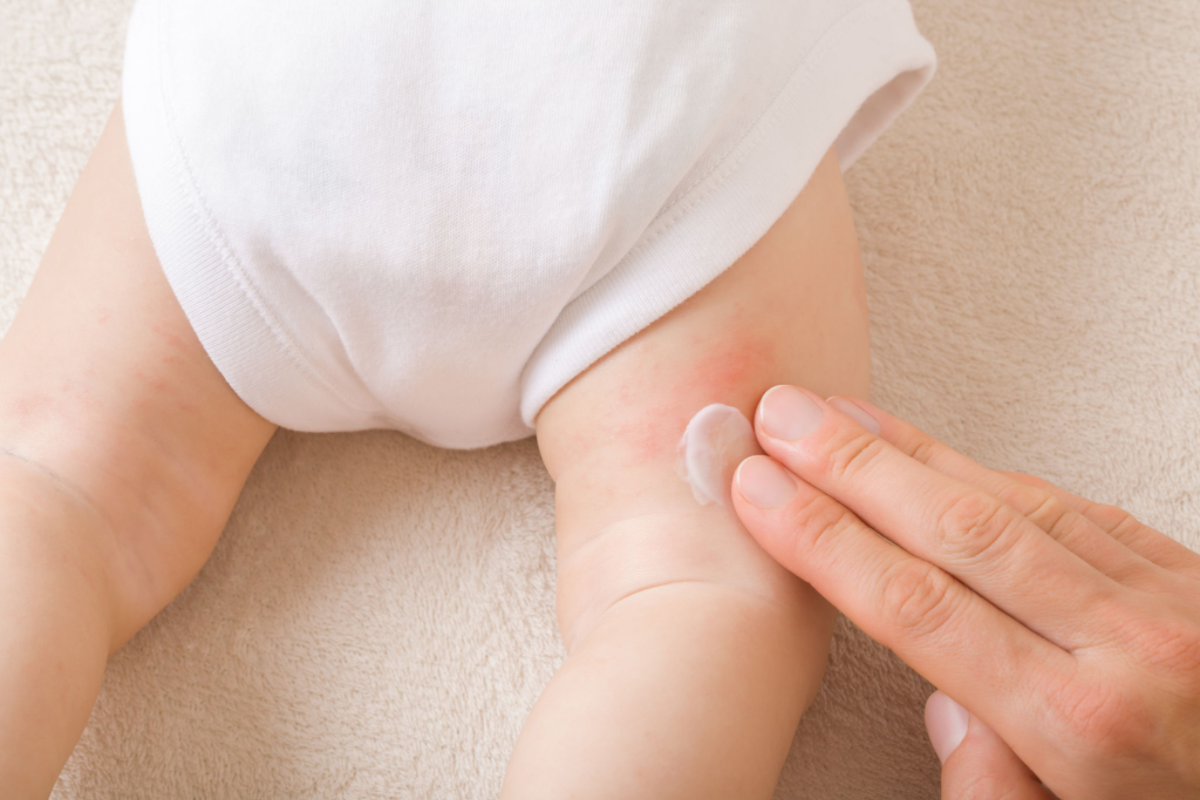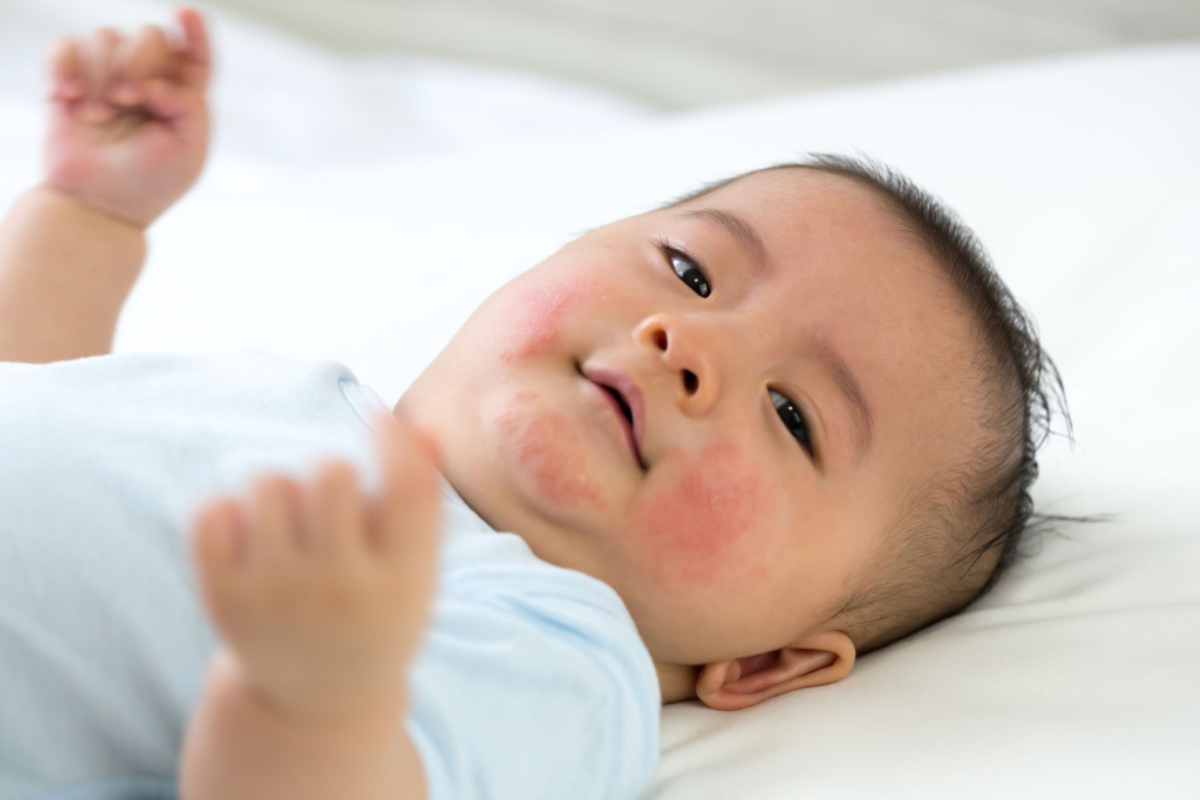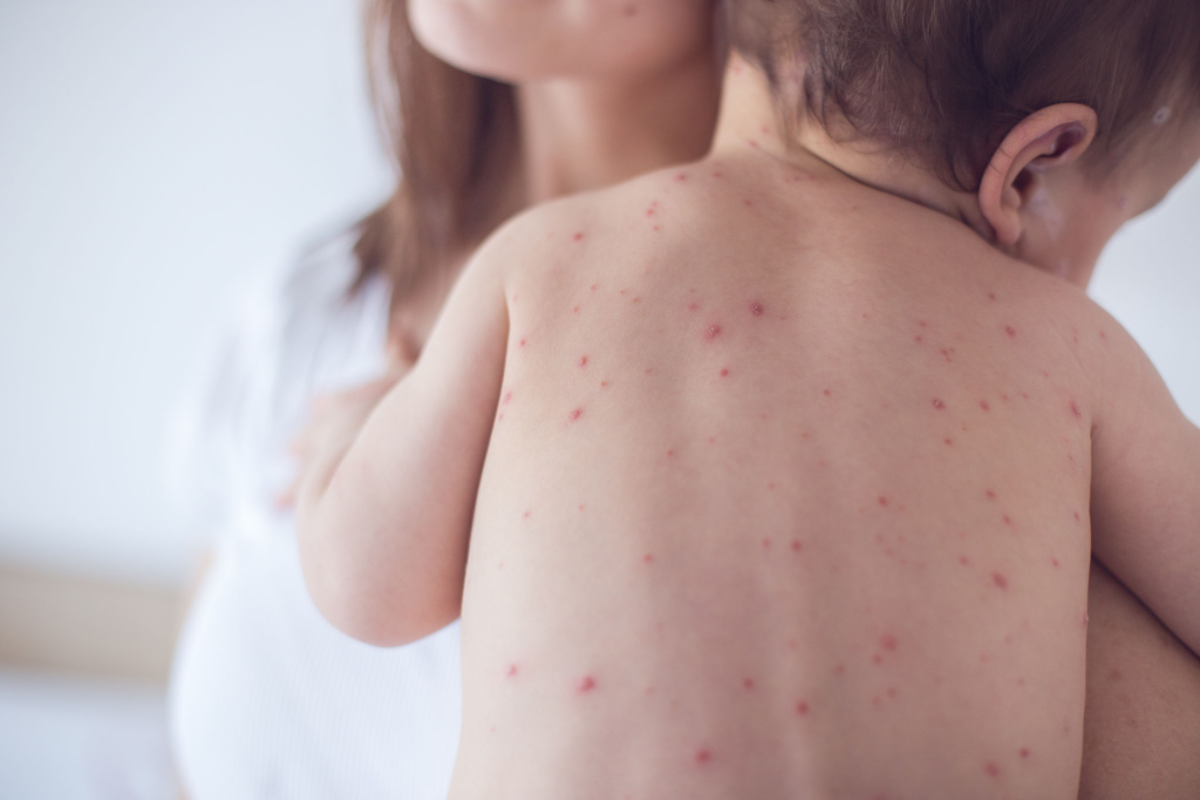The journey of welcoming a new life into the world is a remarkable one, filled with moments of pure joy, new discoveries, and a few hurdles to overcome. As a dedicated parent, your top priority is ensuring the well-being and happiness of your precious little one. Amidst the diaper changes, late-night feedings, and endless cuddles, it’s important to be equipped with the knowledge to address potential health issues, such as allergies, that could arise during your baby’s early stages.
Nestled in the heart of Houston, Texas, the Motherhood Center stands as a beacon of support and guidance for families embarking on this journey. For more than two decades, the center has been a reliable resource for expectant mothers, infants, and young children. From comprehensive prenatal and parenting education to invigorating yoga and fitness classes that cater to both body and soul, the Motherhood Center has been a steadfast partner in promoting overall well-being.
In this article, we set out on a journey of exploration, diving into the realm of common baby allergies. These allergies, though they may present challenges, can be effectively managed with the correct information and assistance. From identifying subtle symptoms to implementing practical strategies for management, we walk side by side, empowering you with the insights needed to provide optimal care for your little blessing.
It’s worth noting that while the Motherhood Center isn’t a medical facility, its dedication to supporting families remains unwavering. Similarly, this article serves as a trusted source, offering insights rooted in compassion, knowledge, and shared experiences. Together, we’ll navigate the landscape of baby allergies, arming you with the confidence and understanding to address this aspect of parenting with competence and care.
Types of Common Baby Allergies
Babies, with their delicate systems still developing, can sometimes exhibit allergic reactions to various substances. Understanding these allergies is crucial for providing the best care to your little one. Let’s explore the different types of common baby allergies and gain insights into how they might manifest.
Food Allergies
As your baby’s digestive system begins to encounter new foods, it’s not uncommon for allergic reactions to occur. Food allergies can manifest as a result of certain proteins that the immune system identifies as harmful. Common allergens include dairy products, eggs, peanuts, tree nuts, soy, and wheat.
Breastfed babies can also be affected by the foods their mothers consume. Certain foods may lead to sensitivities or allergic reactions, which are then passed through breast milk to the baby. If you suspect a food allergy, it’s important to consult a pediatrician or allergist for proper evaluation and guidance.
Environmental Allergies
Just like adults, babies can also be sensitive to allergens present in the environment. These allergens can trigger reactions such as runny noses, sneezing, and skin irritations. Common environmental allergens include pollen, dust mites, mold, pet dander, and insect bites.
Seasonal allergies, often known as hay fever or allergic rhinitis, can affect babies as early as their first year. As they explore the world around them, they may come into contact with these allergens. Understanding the signs and symptoms can help you differentiate between environmental allergies and other conditions.
Skin Allergies
A baby’s skin is incredibly delicate and can react to various substances, leading to skin allergies. Skin allergies often manifest as rashes, hives, eczema, or contact dermatitis. These reactions can be triggered by allergens like certain fabrics, lotions, detergents, or even substances the baby comes into contact with.
Identifying the cause of a skin allergy can be a process of elimination. It’s important to pay attention to any new products or materials that come into contact with your baby’s skin. Keeping the skin moisturized and using hypoallergenic products can help alleviate discomfort and reduce the risk of skin allergies.
Navigating these types of common baby allergies requires vigilance, patience, and a willingness to adapt. By being attuned to your baby’s reactions and seeking professional advice when needed, you’re taking significant steps towards ensuring their well-being and happiness.
Importance of Early Intervention
In the intricate journey of parenting, the significance of early intervention in managing baby allergies cannot be overstated. While babies are resilient, their developing systems can be sensitive to allergens, and taking action at the earliest signs can make a world of difference in their well-being.
Preventing Complications
Addressing allergies early on can prevent the escalation of symptoms into more severe complications. What might begin as a mild skin rash or slight congestion could potentially develop into more distressing reactions if left unattended. By promptly identifying and managing allergies, you’re providing your baby with the best chance to avoid unnecessary discomfort and health risks.
Minimizing Long-Term Effects
Untreated allergies can sometimes have lasting effects on a child’s health. Early intervention can help prevent chronic conditions such as asthma or eczema from taking root. By taking proactive steps to manage allergies, you’re setting the stage for your baby’s optimal health in the long run.
Promoting Overall Well-Being
Allergies, even if not life-threatening, can significantly impact a baby’s quality of life. Discomfort from constant itching, digestive issues, or respiratory symptoms can hinder their growth, development, and general happiness. By addressing allergies early, you’re ensuring that your baby thrives in a comfortable and joyful environment.
Laying the Foundation for Allergy Management
Learning to manage allergies effectively is a lifelong skill that begins early. By taking action at the onset of symptoms, you’re acquiring the knowledge and experience needed to navigate allergies as your child grows. This empowerment prepares you to make informed decisions, advocate for your child’s needs, and create a safe environment throughout their life.
Early intervention isn’t just about addressing the present; it’s an investment in your baby’s future well-being. By recognizing the significance of promptly addressing allergies, you’re taking proactive steps that resonate far beyond the baby years, setting the stage for a healthy and vibrant life ahead.
Recognizing Allergy Symptoms
In the intricate tapestry of baby care, understanding the nuances of allergy symptoms can be immensely empowering. Babies communicate their discomfort primarily through physical cues, and recognizing these signs early on can make a significant difference in managing allergies effectively.
Food Allergy Symptoms
Digestive Distress: Babies with food allergies often experience digestive issues such as diarrhea, vomiting, or colic. These symptoms can be distressing for both the baby and the parents, as they may indicate an adverse reaction to something ingested. It’s important to note that while occasional digestive troubles are common in infants, persistent and severe symptoms could point toward a food allergy.
Skin Reactions: Allergic reactions can manifest on the skin in the form of hives, rashes, or swelling. These symptoms might appear suddenly and can be quite itchy or uncomfortable for the baby. Pay attention to any sudden changes in your baby’s skin texture or appearance, and take note of whether they coincide with the introduction of new foods or environmental triggers.
Respiratory Issues: Some food allergies can lead to respiratory symptoms like sneezing, coughing, or wheezing. These symptoms can mimic colds or respiratory infections, but if they appear consistently after consuming certain foods, they might point to an allergic reaction. Persistent respiratory symptoms, especially when paired with other allergy indicators, warrant further investigation.
Environmental Allergy Symptoms
Sniffles and Sneezes: Runny nose and congestion are common indicators of environmental allergies. If your baby frequently displays these symptoms, especially during certain seasons or in specific environments, it’s worth considering the possibility of allergies. Keep track of when these symptoms occur and whether there’s a pattern associated with particular times of the year or surroundings.
Itchy, Watery Eyes: Allergic conjunctivitis, or pink eye, can lead to red, itchy, and watery eyes. This symptom is often associated with exposure to pollen, dust mites, or pet dander. If you notice your baby rubbing their eyes frequently or showing discomfort in bright light, it could indicate allergic conjunctivitis.
Breathing Difficulty: Babies might show signs of breathing difficulty, such as rapid or shallow breathing, when exposed to allergens. These symptoms can sometimes mimic asthma-like reactions, underscoring the importance of accurate diagnosis. If you notice your baby having trouble breathing or unusual changes in their breathing patterns, seek medical attention promptly.
By keenly observing your baby’s behavior and responses, you become attuned to the subtle ways allergies may present themselves. Documenting these symptoms and discussing them with your pediatrician or allergist can lead to timely interventions and a more comfortable experience for your little one.
Remember that every baby is unique, and while these symptoms can provide guidance, they’re not definitive markers of allergies on their own. Seeking professional advice and sharing your observations with medical experts ensures a comprehensive understanding of your baby’s health. In our next section, we’ll dive into the diagnostic process, offering insights into how medical evaluations and elimination diets can help pinpoint allergies accurately.
Diagnosing Baby Allergies
Navigating the intricate landscape of baby allergies requires a blend of attentive observation and professional guidance. Diagnosing allergies in infants involves a multi-faceted approach that combines medical evaluations and careful dietary considerations. Let’s explore the steps involved in accurately identifying and managing baby allergies.
Medical Evaluation
Consulting a Pediatrician or Allergist: If you suspect your baby might be experiencing allergies, your first course of action should be to consult a qualified healthcare professional. Pediatricians and allergists are skilled in recognizing allergy symptoms and can guide you through the diagnostic process.
Allergy Testing: Allergy testing methods vary and might include skin prick tests, blood tests, or a combination of both. These tests help identify specific allergens that trigger your baby’s reactions. It’s important to note that while these tests provide valuable insights, they should be interpreted in conjunction with your baby’s medical history and observed symptoms.
Detailed Symptom Diary: Keeping a detailed diary of your baby’s symptoms, dietary habits, and environmental exposures can provide invaluable information during the diagnostic process. Documenting when symptoms occur, how long they last, and any potential triggers can aid healthcare professionals in pinpointing the source of allergies.
Elimination Diets
Introducing Solids: As your baby transitions to solid foods, it becomes easier to identify potential allergens. Start with single-ingredient foods and gradually introduce new ones, monitoring for any adverse reactions. This stepwise approach can help isolate specific foods that might be causing allergies.
Step-by-Step Elimination Diet: If food allergies are suspected, an elimination diet might be recommended under the guidance of a healthcare professional. This involves temporarily removing potential allergens from your baby’s diet and then gradually reintroducing them one at a time. Monitoring for reactions during the reintroduction phase can help identify specific triggers.
Breastfeeding Considerations: If you’re breastfeeding, be mindful of your own diet as certain foods you consume might affect your baby through breast milk. Your healthcare provider can offer guidance on adjusting your diet if needed.
Diagnosing baby allergies is a collaborative effort between caregivers and healthcare professionals. Accurate diagnosis not only helps identify allergens but also allows for informed decisions on how to manage and prevent allergic reactions. Keep in mind that diagnosing allergies in babies requires patience and thoroughness. Working closely with your healthcare team and discussing any concerns or observations will pave the way for effective management strategies.
In the following section, we’ll delve into practical steps you can take to manage and alleviate allergies in your baby, ensuring their comfort and well-being.
Managing and Alleviating Allergies
Navigating the complex landscape of baby allergies involves more than just diagnosis—it requires practical strategies to ease discomfort and ensure your baby’s well-being. From crafting a safe environment to making informed dietary decisions, let’s explore actionable steps for effectively managing and alleviating allergies in your baby.
Creating an Allergy-Safe Haven
Babyproofing Against Allergens: Your home can be a sanctuary by designating allergen-free zones. Shield mattresses and pillows with allergen-proof covers and consider using air purifiers to reduce airborne allergens like dust and pollen.
Controlling Humidity: Mold and dust mites, common allergen sources, thrive in damp environments. Maintain indoor humidity levels between 30% and 50% with dehumidifiers to help deter their growth.
Pet Allergies: If you have pets, their dander can trigger allergies. Regular pet grooming, specific pet-free areas, and diligent cleaning can minimize allergen exposure. Employing a high-efficiency particulate air (HEPA) filter can also aid in capturing pet dander.
Nurturing Through Dietary Choices
Breastfeeding Strategies: If you’re breastfeeding, your diet plays a role in managing allergies. Collaborate with healthcare providers to potentially eliminate allergenic foods temporarily. Keep in mind that each baby’s response varies, so adjustments will be based on your baby’s reactions.
Optimal Formulas: Specialized hypoallergenic formulas are available for formula-fed infants with allergies. These formulas use hydrolyzed proteins to reduce the risk of triggering allergies.
Introducing Solid Foods: As your baby embarks on solid foods, prioritize single-ingredient items initially. This approach aids in identifying specific allergens if a reaction occurs. Gradually introduce new foods one at a time and carefully monitor for adverse responses.
Taking a proactive stance in managing and alleviating allergies in your baby empowers you to provide optimal care. By fostering an allergy-safe environment, and making educated dietary choices, you’re cultivating a foundation of comfort and well-being for your precious little one.
Seeking Professional Help
When it comes to your baby’s health and well-being, seeking guidance from healthcare professionals is pivotal. While there are avenues where you can find expert support to navigate the challenges of baby allergies.
Consulting Pediatricians and Allergists
Regular consultations with experienced pediatricians and allergists are crucial for accurate diagnosis and personalized management plans. These professionals have the expertise to interpret allergy testing results, evaluate symptoms, and provide evidence-based recommendations.
Nutritional Guidance
If food allergies are a concern, consulting a registered dietitian or a nutritionist can be immensely helpful. They can offer insights into allergen-free diets, balanced nutrition, and safe food alternatives, ensuring your baby’s dietary needs are met.
Allergy Specialists
In cases of severe allergies or complex conditions, seeking advice from allergy specialists might be recommended. These specialists have in-depth knowledge of allergies and can provide advanced diagnostic methods and management strategies.
While resources are available for parents, including classes and supportive communities, it’s important to recognize the need for professional medical advice and interventions. By collaborating with qualified healthcare providers, you’re equipped with a well-rounded approach to addressing your baby’s allergies effectively.
Conclusion: Nurturing Your Baby’s Well-Being
As we conclude our exploration of recognizing and managing common baby allergies, it’s evident that this journey requires a holistic approach that combines knowledge, vigilance, and expert guidance. Your baby’s well-being is at the heart of every decision you make, and the journey of managing allergies is no exception.
By understanding the nuances of allergy symptoms, you’re equipped to provide prompt care and comfort when your little one needs it the most. Early intervention, as we’ve highlighted, is key to minimizing discomfort and preventing potential long-term effects. The journey of parenthood is marked by its challenges, but your dedication to seeking the best care for your baby is truly commendable.
While the Motherhood Center in Houston, TX, isn’t a medical facility and can’t treat allergies, its commitment to nurturing families is undeniable. Offering a range of resources, from breastfeeding classes to guidance on introducing solids, the center stands as a pillar of support in your parenting journey. Their expert-led parenting classes provide valuable insights into raising a healthy and happy child, complementing the information you’ve gathered here.
Remember, as a parent, you’re not alone in this endeavor. Pediatricians, allergists, and healthcare professionals stand ready to guide you through the challenges of managing allergies. By collaborating with experts, staying informed, and implementing the strategies we’ve discussed, you’re cultivating an environment where your baby can thrive.
As you navigate the road ahead, know that your efforts in recognizing and managing common baby allergies are a testament to your unwavering love and commitment. With knowledge in your corner and the support of resources like the Motherhood Center, you’re fostering an environment where your baby can grow, explore, and flourish. May your journey be filled with moments of joy, discovery, and the comfort of knowing you’re providing the best care possible for your precious little one.
FAQs
What are the common signs that my baby might have allergies?
Babies can exhibit various signs of allergies, such as skin rashes, hives, digestive issues, sneezing, and respiratory symptoms. It’s essential to pay attention to changes in your baby’s behavior, skin, and overall comfort to identify potential allergic reactions.
Can breastfeeding prevent allergies in my baby?
Breastfeeding can play a role in reducing the risk of allergies. Breast milk contains antibodies and nutrients that support a baby’s developing immune system. If you have a family history of allergies, discussing your diet and breastfeeding practices with a healthcare provider can help tailor a plan to your baby’s needs.
How can I introduce allergenic foods to my baby safely?
Introducing allergenic foods gradually and one at a time can help pinpoint any allergic reactions. Start with single-ingredient foods and wait a few days before submitting a new one. This approach makes it easier to identify specific foods that might trigger allergies.
Can babies outgrow allergies?
Yes, many babies do outgrow allergies, especially to milk, eggs, soy, and wheat. However, allergies to certain substances like peanuts or tree nuts might persist into adulthood. Regular check-ins with healthcare professionals can help monitor your baby’s allergies and track any changes over time.
What resources can I find at the Motherhood Center?
While the Motherhood Center isn’t a medical facility and can’t treat allergies, it offers valuable resources to support your journey. They provide breastfeeding classes to help with dietary choices, guidance on introducing solid foods safely, and expert-led parenting classes that encompass a range of topics relevant to raising a healthy and happy child.






